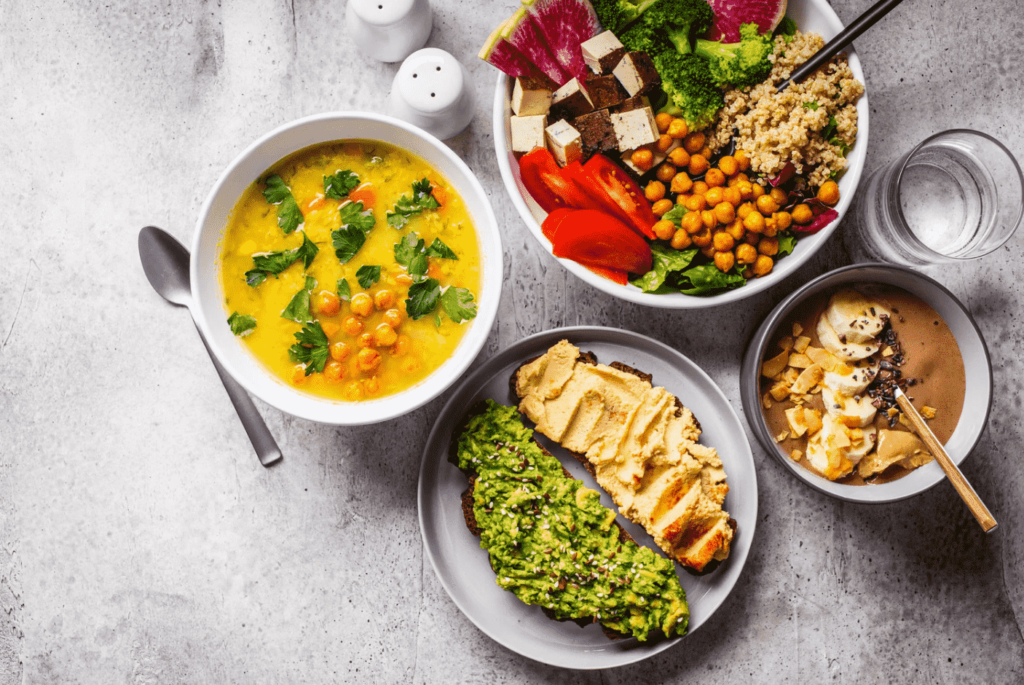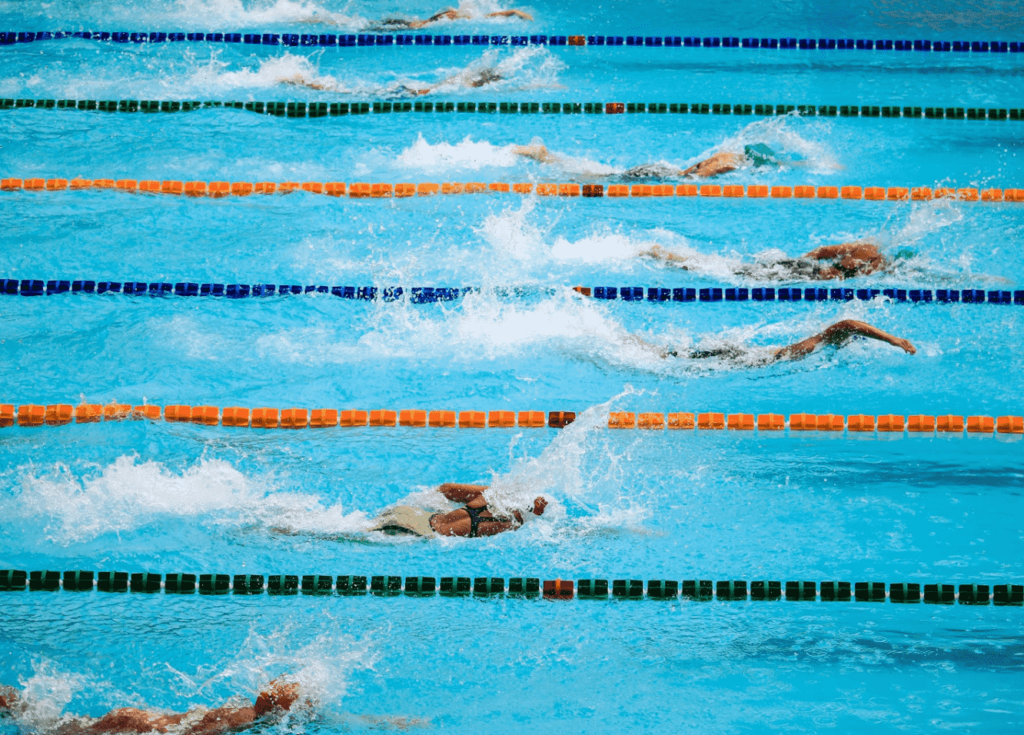The Paris Olympics promised double plant-based food. Balanced interests have been needed to prioritize planetary health and sports

Music, romance, and regicide: the Paris Olympics opening ceremony was a French love fest. A nude Dionysus, the Greek God of wine and celebration, slept amid a mound of fruit with Bacchanalian recklessness. Revolution appeared as a ghastly Marie Antoinette, the beheaded 18th-century queen, staring down from her previous prison.
Recently, food and political rage in France have intertwined, and dietary choices have become a cause of passionate and escalating criticism.
Angered by dwindling salaries and growing bureaucracy, hundreds of French farmers blocked key roadways with their tractors in early 2024. “Mangez Francais” was written on stopped vehicles, and dozens of protestors were jailed after trying to seize a food store outside the city.
A few weeks later, several French food activists gathered in the Louvre. Two Riposte Alimentaire (Food Retaliation) climate activists marched inside and splashed pumpkin soup on the Mona Lisa. They demanded the “right to healthy and sustainable food” and more understanding of the food industry’s environmental impact.
After cleaning, the painting’s famed grin remains incomprehensible. However, these food future wars are neither new or isolated and have broken many eggs. A protester threw cake at the Mona Lisa two years ago, urging people to “think of the Earth” while farmers’ demonstrations have lasted over a year throughout Europe.
Calls to minimize emissions-intensive meat-eating and the agriculture sector’s need for further support for animal products sometimes conflict. Even plant-based meat replacement terms have strained relations between the French government and the highest administrative court.
The 2024 Paris Olympics did not ignore these problems; instead, they took a more conciliatory stance. They have pledged to promote meat-free alternatives and French-sourced vegetables to balance environmental and agricultural interests.
It’s not enough to declare, ‘We don’t want beef burgers.’ The Paris Games’ cuisine director, Philipp Wurz, believes that’s impossible. “Be more courteous and say, ‘Okay, I want to give different options. I want both. Because some menus will contain this dish while others will have chicken, vegan, or vegetarian burgers.
“The meat lobby said, ‘Why are you doing this? Can you clarify? Reminding them that we buy high-quality meat makes them agree.”
Live vegetarianism
A new Food Vision from the Paris hosts outlined new culinary goals for this year’s events. Paris 2024 pledged to obtain 80% of goods from France and 25% from within 250km (155 miles) of the sites and double the quantity of plant-based cuisine supplied at any past Olympics. Organic certification would be 30%.
Wurz says most spectator places provide two-thirds plant-based alternatives. An urban park at Place de la Concorde hosts skateboarding, breakdancing, and BMX activities, and for the first time in modern Olympic history, one stadium is meat-free. Only 40% plant-based food is required at football stadiums. Wurz says this is because they’re mostly outside Paris and have long-standing match catering agreements.
Food service at the Games has proved difficult. The Olympic village dining halls’ meat and egg shortages and breakfast restrictions upset athletes at the outset of the tournament. British swimmer Adam Peaty reported worms in meals and poor quality and quantity in its second week.
Wurz said in an interview before the games that the 60% plant-based food requirement only applied to spectator venues, not athletes in the Olympic village. Valentine Serres, a spokesperson for Sodexo Live!, the Olympic village’s official caterer, told BBC Future Planet that all foods were “available in adequate quantities” a few days after the initial shortage claims.
Medal Moments
Read more about the Olympics. Medal Moments, your free worldwide guide to Paris 2024, will be sent daily to your email throughout the Games.
Wurz claims 30% of competitors’ dining halls are vegetarian, including veggie beef-bourguignon and lasagna, despite athletes’ supplies falling outside the two-thirds plant-based objective. “It’s impossible for us to impose on a foreign delegation a diet: athletes have their special diets and, as an organising committee, our main role is to ensure they feel at home”
What was required to set these goals? Do the objectives prioritize global health sufficiently alongside sports?
Eco-friendly catering was already improving during the 2012 London Olympics. London’s Food Vision mandated 100% free-range eggs, sustainable wild-caught seafood, and organic-certified milk.
Many countries have adopted worldwide scientific assessments’ flexitarian diets in their national dietary recommendations after a decade. New German guidelines recommend 75% plant-based diets.
This tendency was seen in the Paris Olympics. Wurz says the catering commitment to provide twice as much plant-based meals as previous Olympics in Rio and London supports the Games’ goal of halving carbon emissions.
Each meal should emit 1kg of CO2 on average. The Food Vision estimates that this aim is half the 2kg carbon footprint of past Games meals or half that of the typical French person (just over 2kg each meal).
In addition, the Paris games’ food plan pledges to decrease animal protein in all meals. Vegan and vegetarian cuisine include green lentil dahl with coriander skyr, the sports village’s chief chef Charles Guilloy’s specialty dish, according to Sodexo Live!
Even with these projected advances, are the Paris Olympics’ food targets enough?
Jasmijn De Boo, CEO of food awareness charity ProVeg International, said the goal to provide twice as much plant-based cuisine as the typical French person is “very appropriate for an event in the global spotlight”.
De Boo notes that a 2023 EU-funded Smart Protein report found that France had the largest proportion of meat eaters who reduced their intake by 50% or more in the previous year, with 18% doing so.
This matches 2023’s Cop28 climate conference’s two-thirds plant-based catering objective and 2024’s Bonn Climate Conference’s vegan mandate. These activities were meant to reduce emissions, thus De Boo expects them “to go further than the sport-focused Paris Olympics”.
Fabrice DeClerck, scientific director of Eat, a non-profit that aims to change the global food system, finds the Paris promises “impressive”, particularly the focus on “responsible” consumption
Some say there’s potential for improvement. DeClerck wanted additional red meat reduction details. He says this is the largest carbon emission reduction goal, with the Eat Lancet commission’s flexitarian diet proposing 0-200g of red meat per week.
“Without being clear on whether the reduction they’re proposing comes from red meat, then it’s not clear how ambitious the Games are being,” he adds.
According to Leiden University assistant professor of environmental change Paul Behrens, the Olympic objectives don’t promote a plant-based diet as much as Germany, Spain, or Denmark’s national requirements.
The food factor
The shift is excellent for athletes who’ve already adopted plant-based diets, but it might go farther. Kate Strong, Britain’s three-time world record-breaking cyclist, believes dietary change campaigning might benefit from “laser-focused attitude that people admire in athletes”.
“I wish the Olympics, Paralympics and many other events unapologetically served plant-based food without having to justify it behind ‘less carbon emissions,'” she adds of the Paris proposal. She says a plant-based diet can reduce footballers’ oxidative stress (an imbalance in antioxidants that breaks down cell tissue) and improve endurance athletes’ cardiovascular protection.
Dotsie Bausch, a former US Olympic cyclist and Switch4Good founder, believes the Paris organizers might have done more to explain their aims. “I wish there was more education about the reasons why, not just sharing that targets have been set,” adds. She “didn’t want to be part of the killing and suffering and degradation of my planet” .
After 35 years of eating meat at practically every meal, Bausch changed her diet before the 2012 Olympics and credits it with helping her win a silver medal.
“I made the change just before London 2012 Olympics […] and I wasn’t expecting to see any performance enhancement, but I had a feeling inside that if I made sure I was getting the same micro- and macronutrients that I would thrive.”
The Games provide several plant-based cuisine. The official partner Garden Gourmet, a plant-based meat-substitute business owned by Nestlé, the world’s biggest publicly traded food company, provides processed goods at the athletes’ village.
Nestlé has been attacked for not supporting animal farm carbon reductions. The UK advocacy organization Changing Markets Foundation compared 22 of the top global meat and dairy corporations’ advertising spending to their low-carbon solution investments. These firms spent less than 1% of their current sales on research and development, where data was available.
“It’s great that the Paris Olympics are delivering healthier, plant-based meals to lessen their carbon impact. Changing Markets CEO Nusa Urbancic believes Nestlé, which owns Garden Gourmet, lacks a comprehensive strategy to scaling up plant-based goods.
“Despite some progress, Nestlé still does not have a strategy to grow plant-based product sales, perceiving it as a consumer-driven industry. Science reveals that switching to plant-based goods might mitigate climate change, thus this is a squandered opportunity “says Urbancic.
A Nestlé spokeswoman believes flavor and sustainability drive plant-based product development. They also emphasize their supplier chain’s agricultural greenhouse gas emission reduction objectives of 20% by 2025 and 50% by 2030 (from a 2018 baseline).
Despite criticism, the Paris games’ culinary concept aims to improve sustainability in international sports.
The Olympics’ plant-based goals may still reach the podium, even if they’re not moving quickly.


